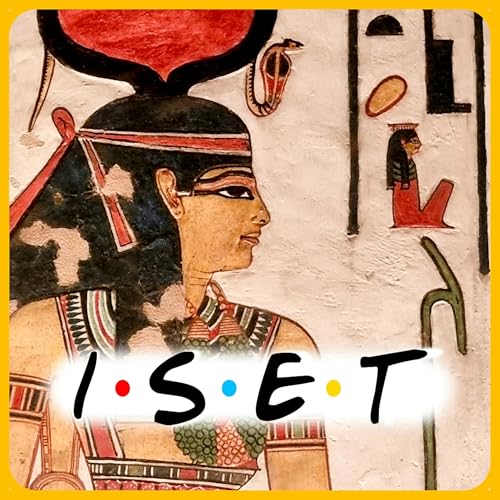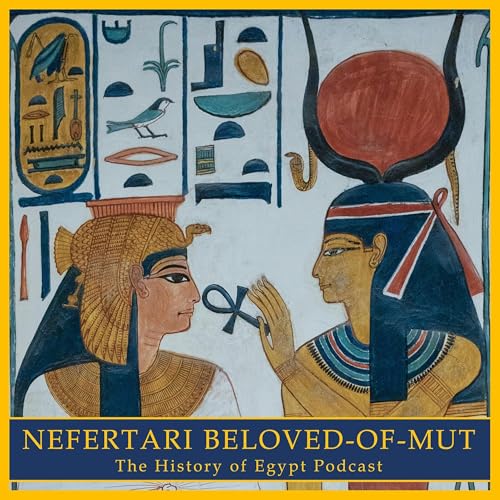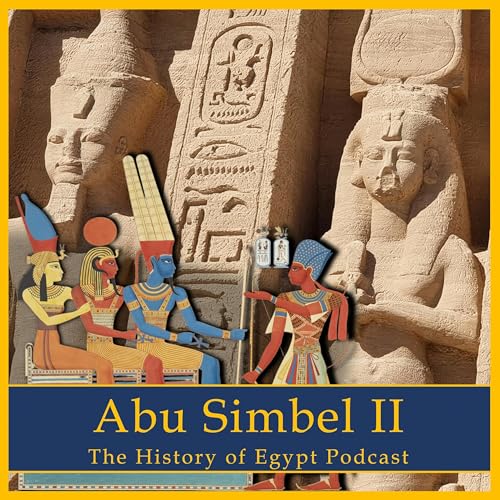In the Cretaceous Period (c.100 million years ago) Egypt and North Africa were radically different environments. With vast tidal flats and mangroves, and a shallow sea, the continent fostered numerous animal and plant species. Creatures like Paralititan (sauropods); the sprinting Deltadromeus; the infamous Spinosaurus; and the newcomer Tameryraptor. These have been preserved in the fossil record from Egypt and other countries in North Africa. Today, we meet some of the inhabitants of this ancient landscape… Logo image: Spinosaurus aegyptiacus, by Paleogeeksquared, via Wikimedia. Animals mentioned in this episode: Paralititan: https://en.wikipedia.org/wiki/Paralititan Deltadromeus: https://en.wikipedia.org/wiki/Deltadromeus Mawsonia: https://en.wikipedia.org/wiki/Mawsonia_(fish) Leptostomia: https://en.wikipedia.org/wiki/Leptostomia Spinosaurus: https://en.wikipedia.org/wiki/Spinosaurus Tameryraptor: https://en.wikipedia.org/wiki/Tameryraptor Select references: Dal Sasso, C., Maganuco, S., & Iurino, D. (2014). Update on the internal structure of the snout of Spinosaurus aegyptiacus. Second North African Vertebrate Palaeontology Congress, Ouarzazate. Darwish, M. H., & Attia, Y. (2007). Plant impressions from the mangrove-dinosaur Unit of the Upper Cretaceous Bahariya Formation of Egypt. Taeckholmia, 27, 105--125. Hone, D., & Holtz Jr, T. R. (2021). Evaluating the ecology of Spinosaurus: Shoreline generalist or aquatic pursuit specialist? Palaeontologia Electronica, 24(1), 1–28. https://doi.org/10.26879/1110 Hone, D., & Witton, M. P. (2025). Spinosaur Tales: The Biology and Ecology of the Spinosaurs. Ibrahim, N., Sereno, P. C., Dal Sasso, C., Maganuco, S., Fabbri, M., Martill, D. M., Zouhri, S., Myhrvold, N., & Iurino, D. A. (2014). Semiaquatic adaptations in a giant predatory dinosaur. Science, 345(6204), 1613--1616. https://doi.org/10.1126/science.1258750 Roach, J. (2001, May 31). “Tidal Giant” Roamed Coastal Swamps of Ancient Africa. National Geographic News. https://web.archive.org/web/20010605022420/http://news.nationalgeographic.com/news/2001/05/0531_tidaldinosaur.html Sereno, P. C., Myhrvold, N., Henderson, D. M., Fish, F. E., Vidal, D., Baumgart, S. L., Keillor, T. M., Formoso, K. K., & Conroy, L. L. (2022). Spinosaurus is not an aquatic dinosaur. eLife, 11, e80092. https://doi.org/10.7554/eLife.80092 Smith, J. B., Lamanna, M. C., Lacovara, K. J., Dodson, P., Smith, J. R., Poole, J. C., Giegengack, R., & Attia, Y. (2001). A Giant Sauropod Dinosaur from an Upper Cretaceous Mangrove Deposit in Egypt. Science, 292(5522), 1704--1706. https://doi.org/10.1126/science.1060561 Learn more about your ad choices. Visit megaphone.fm/adchoices
Más
Menos
 Mar 2 202631 m
Mar 2 202631 m Feb 16 202634 m
Feb 16 202634 m Feb 9 202628 m
Feb 9 202628 m Feb 2 202650 m
Feb 2 202650 m 33 m
33 m Jan 12 202631 m
Jan 12 202631 m Jan 5 20261 h y 57 m
Jan 5 20261 h y 57 m Dec 26 202520 m
Dec 26 202520 m
